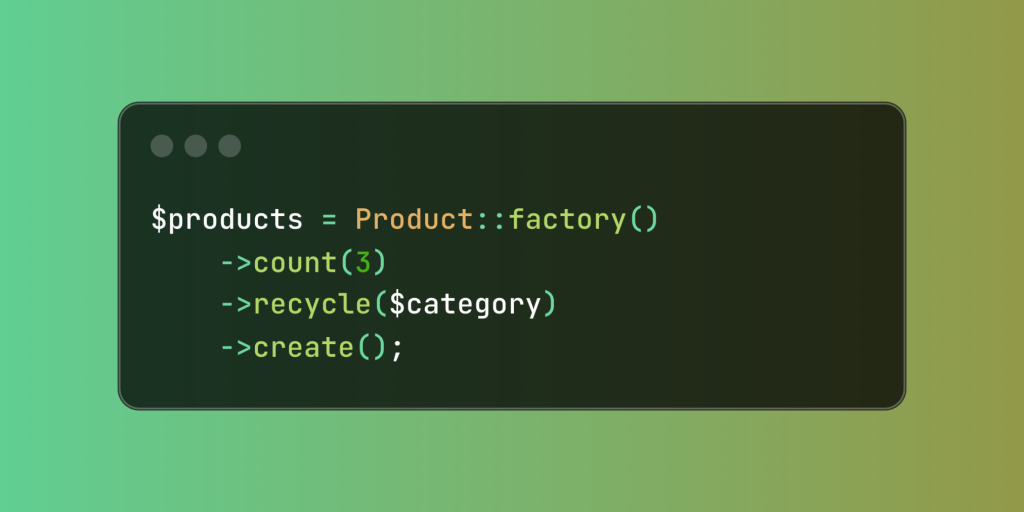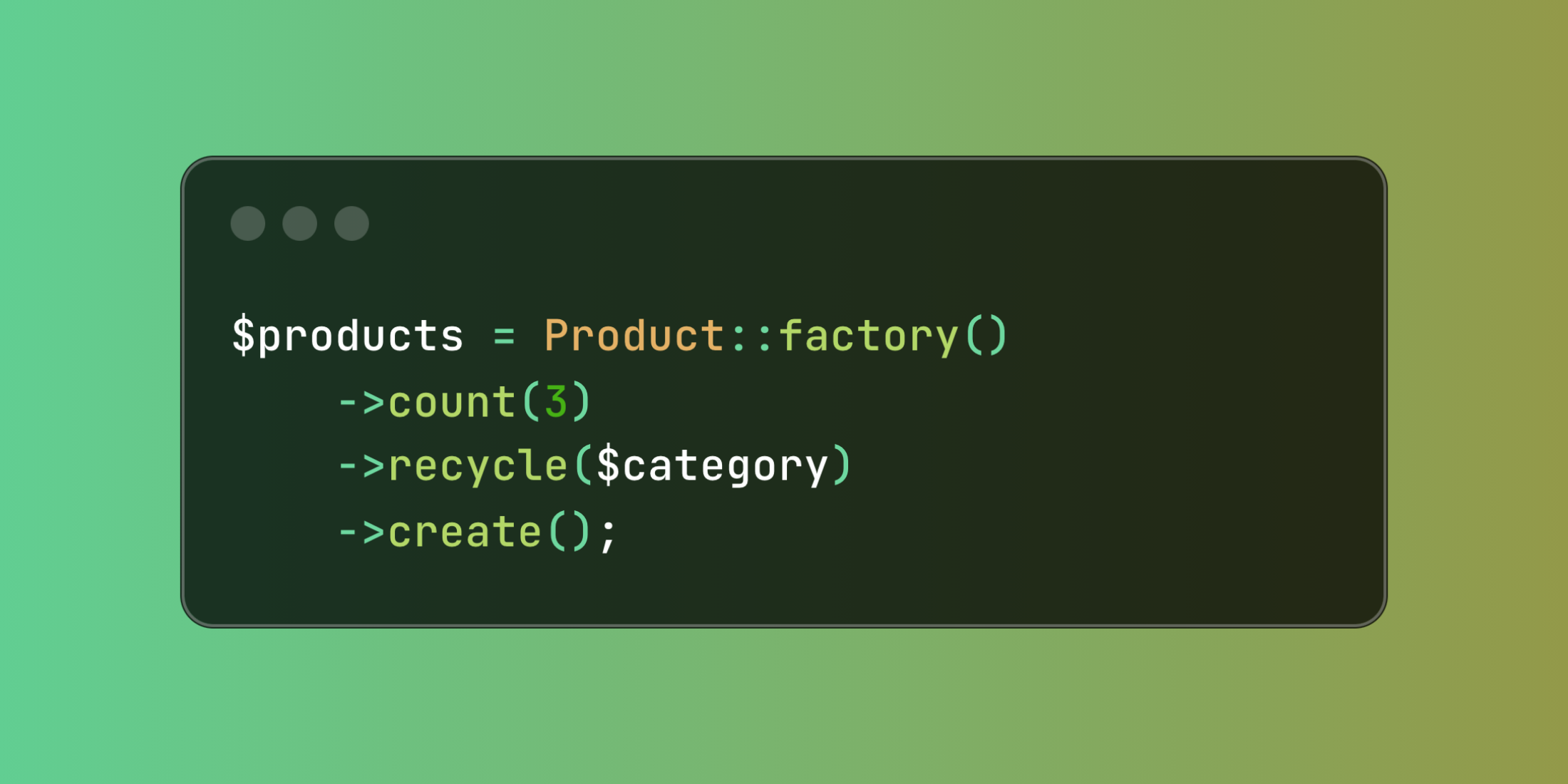Laravel’s factory system introduces the recycle method, allowing efficient reuse of model instances across multiple factory calls. This feature is particularly valuable when creating complex data structures with shared relationships.
// Basic recycling
$category = Category::factory()->create();
$products = Product::factory()
->count(3)
->recycle($category)
->create();
Let’s explore a practical example of an e-commerce testing environment:
<?php
namespace Tests;
use AppModelsStore;
use AppModelsProduct;
use AppModelsCategory;
use AppModelsOrder;
use TestsTestCase;
class StoreTest extends TestCase
{
public function test_can_generate_sales_report()
{
// Create base structure
$store = Store::factory()->create();
$categories = Category::factory()
->count(3)
->recycle($store)
->create();
// Create products in categories
$products = Product::factory()
->count(20)
->recycle($store)
->recycle($categories)
->create();
// Generate orders using same products
$orders = Order::factory()
->count(50)
->recycle($store)
->recycle($products)
->create()
->each(function ($order) use ($products) {
// Add 1-5 random products to each order
$orderProducts = $products->random(rand(1, 5));
$order->products()->attach(
$orderProducts->pluck('id')->mapWithKeys(function ($id) {
return [$id => ['quantity' => rand(1, 5)]];
})
);
});
// Test report generation
$report = $store->generateSalesReport();
$this->assertNotNull($report);
$this->assertEquals(50, $report->total_orders);
}
}
The recycle method significantly improves factory performance by reusing existing models instead of creating new instances for each relationship.
The post Optimizing Factory Data Creation with Laravel’s recycle Method appeared first on Laravel News.
Join the Laravel Newsletter to get all the latest
Laravel articles like this directly in your inbox.
Source: Read MoreÂ




